

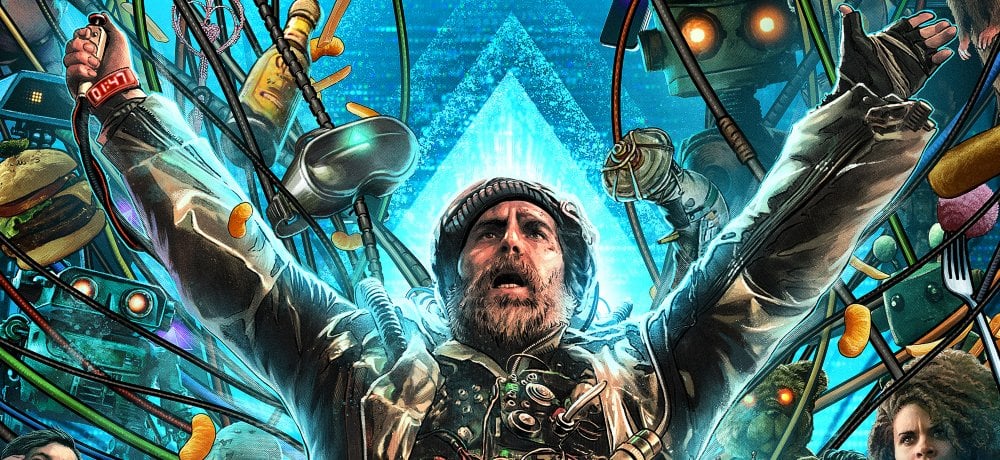
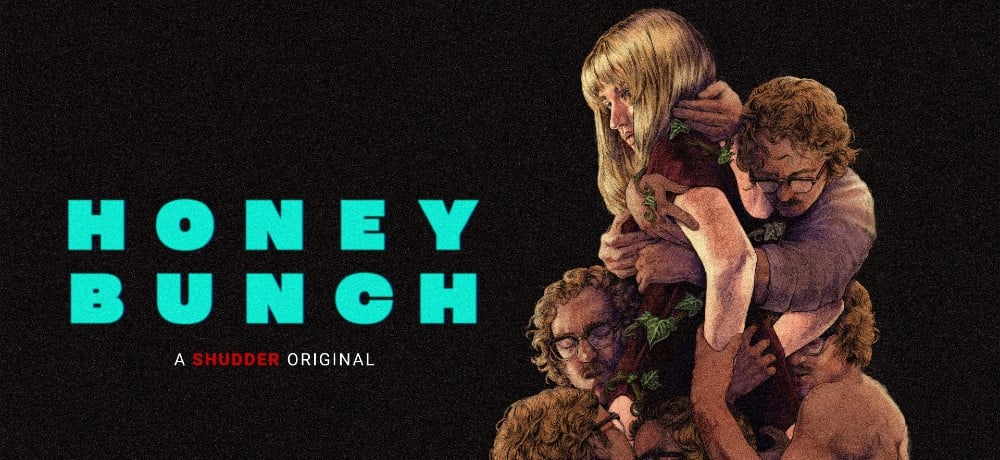
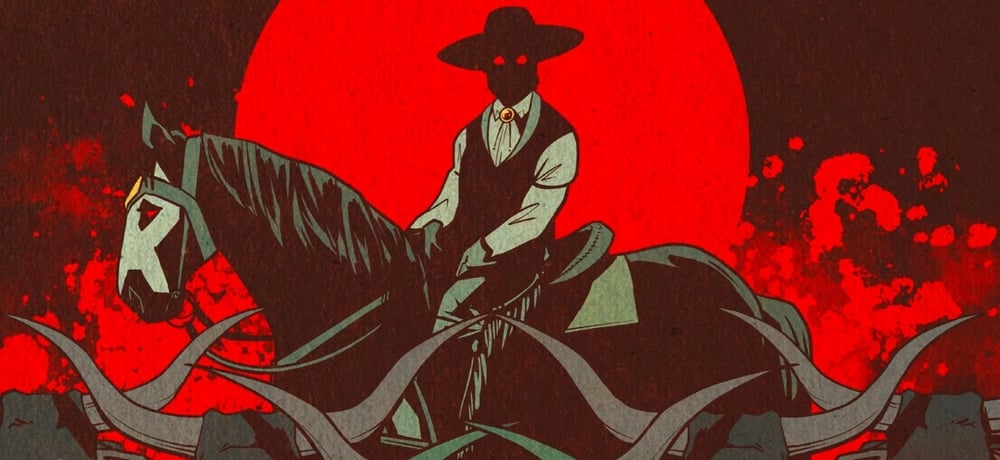
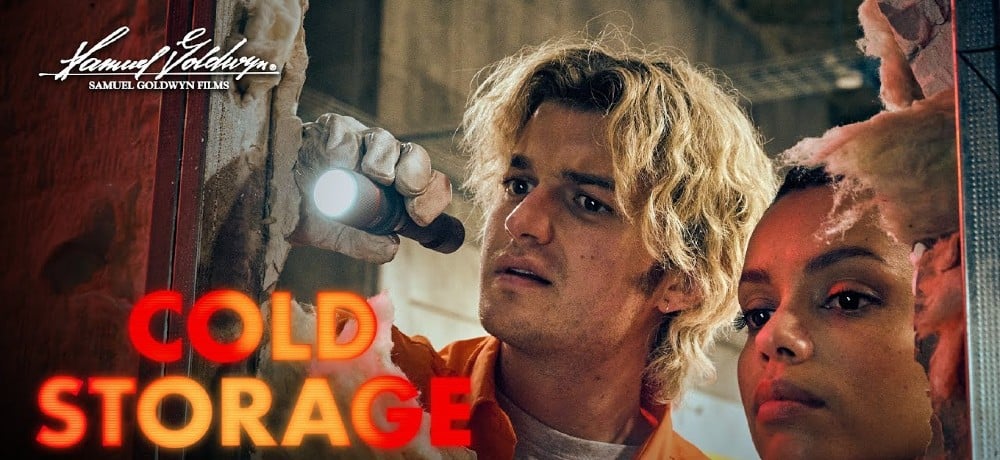
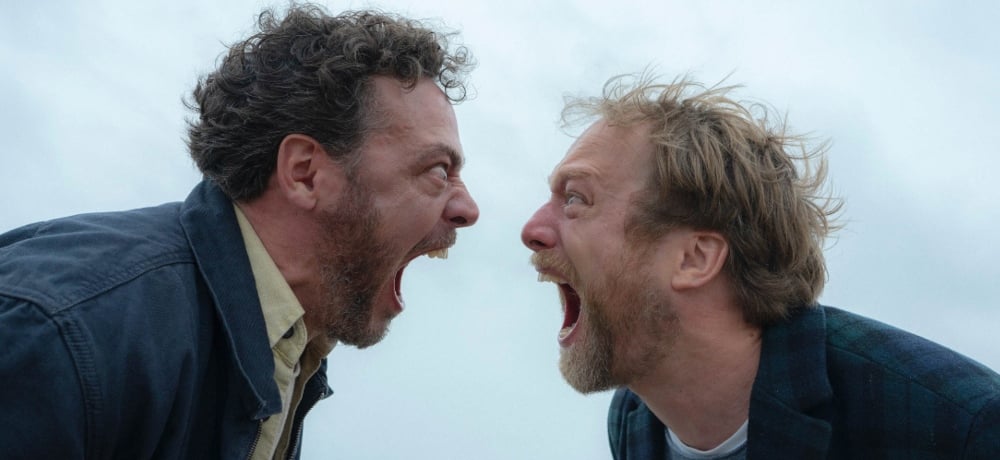
This writer has seen a lot of fantastic films during this year’s Sundance Film Festival, but the one movie that left me completely unraveled was Christian Tafdrup’s Speak No Evil (which will be headed to Shudder later this year), and I knew I needed to chat with the filmmaker behind such a devastatingly disturbing film.
Daily Dead had the opportunity to speak with Tafdrup late last week about Speak No Evil, and during our conversation, the Danish multihyphenate discussed the real-life inspirations behind this story, wanting to create a film about the dangers of being “too polite,” collaborating with his cast, and the challenges he faced along the way in getting Speak No Evil made as well.
So great to speak with you, Christian. I watched this movie last night and I was so unnerved by the time we got to the ending. By the time it was done, I was like, “I have to go put on something familiar and shake this off now” [laughs]. So thank you for that, because it takes a lot for a movie to make me unravel the way Speak No Evil did, so congratulations.
Christian Tafdrup: Oh, thank you so much. I appreciate that. That was also the intention in a way. If you didn't get a reaction from that ending, I mean, that might mean in one way it didn't succeed, but in another way, that would mean that you were an extremely cold person [laughs].
Definitely. So, I’m curious, what inspired the idea for this story then?
Christian Tafdrup: Well, everything starts with an idea, and sometimes it can be difficult to remember how that idea emerged. But I remember one day I was thinking back on my childhood when my brother [Mads Tafdrup] and I, with whom I wrote the script, were having holidays with our parents this way a lot. We often went to Italy or Greece or France and stayed at these villas where you socialize with people you don't know, and you sit at the long table at night. And I like that. I like to be nice and polite and to have holiday friends where everybody is interested in a nice vacation. So you're the best version of yourself. And sometimes, it happens that you exchange telephone numbers or emails and you write a little bit.
Sometimes, we were invited to visit these couples that we met, so we spent like a weekend in Germany or Belgium, I think, and it was always not the same atmosphere as on the holiday. We were in their private home, the bed was not nice, or they had an ugly dog [laughs]. Things like that. But because we were guests there, we would just stay around because we were trying to be polite. But when we went home or drove home to Denmark, we often felt that we were violating ourselves in the attempt to just behave, which is extremely human, of course. It would be rude to say we don't like this place or we have to leave one day before.
Then I had an experience three years ago with my own family in Italy, where we met a Dutch couple and they invited us to Rotterdam. They also had kids. My girlfriend and I looked at each other and said, “No, let's not go.” But then I started thinking about this as a situation for a movie and imagined what would've happened if I went to Rotterdam. And I spoke with my brother about this and immediately we came up with a lot of funny and very uncomfortable, awkward situations. And this could be a comedy, it could be a drama, but we looked at each other and said, “What if the worst thing happened? Let's make a movie where the worst thing that can happen happens.”
And then we started to think of it as a horror film, which I've never made. I'm not particularly a fan of horror films, but I like some conventions of horror films, and I like when you use satire or comedy or drama and mix it with horror. So on one hand, it was just a simple, very inspiring idea for a film, and on the other hand, I was trying to go places I didn't feel so familiar with to create another take on horror. So it was definitely this uncomfortable, very recognizable situation that I think most people can relate to when you are spending time with strangers. And out of that, we started writing the script, and then the themes came more and more to life. It took a long time for us to understand what it actually was about, but that became more and more clear as we fleshed out the idea.
Something I wanted to talk about is that there's an exchange where one character says, “Why are you doing this?” And the response they get is, “Because you let me.” I don't know if you've seen the movie The Strangers, but it reminds me of when the three killers are asked why they were doing this, and they respond, “Because you were home.” And I think that, to me, when you have that kind of simplicity in your violence, it is utterly terrifying. And I think that’s what made Speak No Evil unnerving for me. Sometimes simple is best.
Christian Tafdrup: You know, we really thought it was fun to make a thriller or horror without the cliches of the genre. You could easily have a house where they lock the doors or a creepy basement. We also had drafts where they had weapons and we just felt that this was not that kind of movie. The twist is that they can always go home. There's a car outside, so why don't they go home? What are all the excuses to stay? And why are people like that? I was thinking of how many times I did things even that I really didn't want to. I admit I'm a polite person. I have a lot of social manners. So this story also explored how Scandinavians in a way are very much like this. But if we really meet evilness, are we permitting the evilness ourselves? Do we have the tools to fight against it? What will a modern, civilized person do if something really, really evil happens to us?
Those were just interesting questions to me, because I would personally try to make friends with the devil or smile at him or maybe try to talk a little bit with him. I would never start to fight or suddenly shoot a gun. I'm a very polite Danish guy with a family. I've never experienced real trouble except when I couldn't find my daughter at a playground, or I had to put down a dog that was sick. So I was just wondering, “How would I react if the worst thing happened?” And I had to be very honest and brutal about myself in that way.
I'd love to talk about this cast because I think everybody is excellent in this. Can you talk a little bit about finding your actors and getting them to tackle these extremely complex characters?
Christian Tafdrup: Because I'm originally an actor, and I still work as an actor, so I know almost every actor in Denmark—we are a small country—but my casting agent and I had a lot of very, very good Danish actors and actresses that we saw in the casting process that are very, very experienced, but they just didn't nail the parts. They were too clever, too sexy, too smart, too passionate. And then Morten [Burian] and Sidsel [Siem Koch], came into casting, and they were the only one of the couples that were a little bit off, a little bit nerdy or awkward or a little bit behind themselves. They were the only couple where they could see they were trying to be polite and all that and they were really fighting with that. The problem was that Morten was not experienced in front of a camera. He's a very gifted theater actor, but he never really had done any films. And Sidsel just came out of theater school, so they had some bad habits. They were also overacting, but they were right for the part. So we just started to work with them in front of a camera, and I showed them what worked and what didn't work.
I must admit, I was extremely nervous before going on the first shooting day. But when we were there, these actors were just absolutely phenomenal. I think what happens when you work with new people is that they want to give you their whole life for the film. There were no divas, there were no problems, they were just totally into it. But with the Dutch couple [Fedja van Huêt and Karina Smulders], it was the opposite. They are very well-known in Holland. They are big stars and they do a lot of films and they are married in real life. So I thought that could be an interesting thing to add to the film. So with them, I didn't work with them that much.
But as a director, you have to speak in different ways depending on who the actors are, so the way I directed the Danish couple was extremely much different from the way I directed the Dutch couple. It was interesting. And then, there are kids that have never been in front of a screen, and they also had to do some challenging things. So I did a good job at being nice to them and making them feel safe and I constantly talked to the parents. We actually created a very fun and safe shooting space for them, which I think that's extremely necessary whenever you do a dark film like this.
Yeah, I was going to ask, I mean, there are moments where you really go there and I won't get into any specifics because I don't want to ruin anything, but was there ever a moment where you asked yourself, “Oh wow, have we gone too far?”
Christian Tafdrup: I totally get you. And I promise you, I've been there with all these inner discussions with myself. The thing was that my brother and I, we looked at each other before writing the script and we promised each other to make the most disturbing film ever made in Denmark. Because films in Denmark are very nice, very polite, very good, but they do no harm. So let's make a disturbing film and prove this premise that politeness can lead to your death. But I must admit during the writing, I often wondered if it was too much. Personally, I love when films are too much, but we also had to have casting and funding, too. There were actors who didn't want to be in the film unless I changed the ending. We lost some budgets, too, because those people didn't believe in the ending.
And it's okay if this story divides people, and it's okay if somebody hates this film. A film takes so many years to make, so to me, a film should be special. It should be a journey that has not been seen before. I love when films dare to do that. So if somebody will hate this, if it will get bad reviews and all that, it's okay because my brother and I promised each other to be radical. And I think we kept that promise.
Before we go, I wanted to ask what’s been your biggest takeaway from your experience working on Speak No Evil then?
Christian Tafdrup: I must admit that even though the film itself was great to make, I must say that this has been one of the hardest, most difficult experiences in my career. That is also because of COVID, but we had so much trouble and so much bad luck. It's been really, really devastating. There were times where we thought we couldn't finish the film. We had several years of shooting, but it took 12 months with a lot of breaks. I had actors that didn't want to be in the movie anymore because of COVID. We had a location that turned us down, we had kids that were growing up. I mean, I felt like it was Apocalypse Now or something [laughs].
So in a personal way, it also took a hard toll on me and my family. And I also had to ask myself, “Is it worth it?” I'm extremely passionate. I go into a job and I'm there all the time. But if it takes four or five years and you're also mentally stressed out because you don't know if you're going to finish it, that’s a hard ride. But I also think I made a film that is on a different level than my previous films. With Speak No Evil, I wanted to reach out to more of the world. I'm extremely nervous if that will happen, but I think it's the first film I made where I can really take myself seriously as a director.
I had trouble before Speak No Evil calling myself a director because I'm also an actor, but with this film, now it's like there's no way back. But I have always wondered a little bit, is it going to be my last film? I was just so exhausted from everything. But three weeks ago, I went back for the first time to my writing desk to come up with new ideas because I was feeling sick after this experience, I must say. It was a hard film to stay in for so long, which was something like a little more than four years.
---------
Go HERE to catch up on all of our coverage of the 2022 Sundance Film Festival!
[Photo Credit: Above photo courtesy of Erik Molberg / Sundance Institute.]